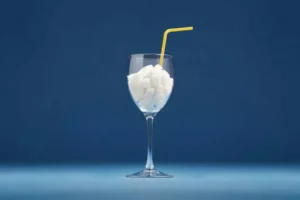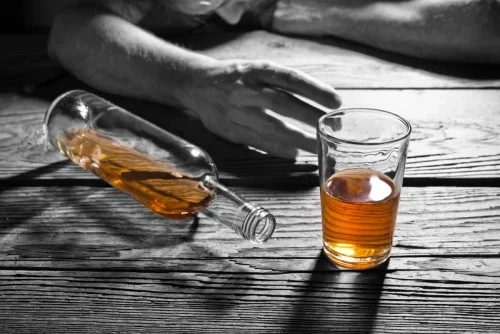
It also lets you start working new habits and routines into your day to replace drinking, starting the transition. Rather than beginning your sober life drained and dazed from a week of feeling ill, you can already be getting on your feet. Many swear by a hot toddy laced with whisky, brandy or rum as a popular “cure” for a cold – but alcohol could actually make your symptoms worse. “It can cause inflammation and dehydration and hamper your immune system. When you’ve got a cold, you’re more likely to have inflammation and be dehydrated, and your immune system is already busy.
Creating a plan to safely taper off alcohol

As a result, you can end up in a cycle of regular alcohol withdrawal and increased cravings for alcohol each week. The fundamental aim of detox is to medically manage the impact of alcohol withdrawal. A detox programme will monitor your symptoms and may include medication and other treatments. Detox programmes are generally short, typically between 7 and 10 days. Because detox is a medical intervention, you should always check the qualifications, experience and registration status of anyone who provides this service.
- People who experience tremors, shakes or confusion when they quit drinking should consider medically supervised detox.
- This can help your body adjust, and it can be easier to manage than quitting cold turkey.
- With a doctor’s help, you can taper off alcohol slowly to avoid severe symptoms.
- Usually, alcohol withdrawal symptoms occur within 12–24 hours after stopping alcohol and can last 2–10 days.
- As a depressant, alcohol will cause your brain and body to get used to its inhibitory effects on your nervous system.
- When you taper your alcohol, you slowly reduce your alcohol intake over time.
Understanding alcohol dependence and withdrawal
- It can lower the severity of symptoms, and it can make you more likely to meet your goals.
- Whether you take a cautious or more aggressive approach, you will continue drinking for some time.
- If your body becomes physically dependent on alcohol, you may experience withdrawal symptoms when you stop drinking.
- Depending on the clinical setting, a total of eight or more would indicate that medication may be necessary to control symptoms.
- These strategies work in different ways to help you quit drinking, and one may be more appropriate for you based on your needs.
Note that Disulfiram it is not a cure to alcoholism, and a full therapy must be used. We have taken the necessary precautions to minimize the risk of exposure and transmission of the Coronavirus to those in our treatment programs, allowing them to focus on their recovery. “The role of GABAA receptors in mediating the effects of alcohol in the central nervous system.” Journal of Psychiatry & Neuroscience, July 28, 2003. Within 5 minutes, you’ll receive an email with these details – free of charge.
Work in the drinks industry?
If it is a mixed drink, it can contain sugar or other additives that should not be included in the taper and may worsen the effects of withdrawal symptoms. Minor symptoms of alcohol withdrawal can start as soon as six hours after the last drink of alcohol. Tapering is the practice of slowly reducing the regular consumption of a substance like alcohol. Tapering can sometimes help a person avoid uncomfortable and sometimes deadly symptoms of withdrawal.
Prefer Topiramate or Gabapentin if patients are intolerant to or have not responded to Naltrexone and Acamprosate. There are two types of triggers that can set off a person’s urge to drink. External triggers are people, places, things, or times that offer opportunities to drink and remind a person of alcohol. Internal triggers are thoughts, emotions, or physical sensations that cause a person to drink.
How Long Does Tapering Off Alcohol Take?
Alcohol withdrawal symptoms are not just caused by the complete absence of alcohol but by any big changes in the amount you drink. For example, you might be in a pattern of heavier drinking at the weekends than during the week. If you drastically cut back on a Monday and Tuesday, you may feel unwell on a Wednesday or Thursday as your symptoms intensify.
- The Recovery Village Atlanta offers comprehensive addiction treatment for drug and alcohol addictions and co-occurring mental health conditions.
- While it was once something that you used socially or to have fun, you now need it to feel normal.
- Another option is a neutral spirit like vodka, diluted with fruit juice or cordial.
- If you want to cut back your alcohol consumption or stop drinking alcohol altogether, tapering may help.
- As your body adapts to alcohol, it will change its natural chemical balance to include alcohol.
- Big gaps in your drinking schedule open the door to unwanted symptoms.

Seizures can also occur within the first 24 to 48 hours, although these are less likely to occur in people with less severe alcohol dependency. Withdrawal seizures can be a sign of delirium tremens, which can occur as soon as 48 hours after a person’s last drink. We are dedicated to transforming the despair of addiction into a purposeful life of confidence, self-respect and happiness. We want to give recovering addicts the tools to return to the outside world completely substance-free and successful.
Once you’ve changed to a less alcoholic option, you can gradually reduce your drink amount. Although it is possible to taper your alcohol use alone, professionals highly advise that you seek medical attention. Detoxing from alcohol can be dangerous if you don’t do it properly. Medical detox programs for alcohol dependency commonly offer medications to ease the discomfort or pain of withdrawal. This is a benefit that isn’t available to all who attempt to taper at home. Medicines can be used to reduce nausea, severe anxiety, other flu-like symptoms, and treat seizures.
Challenges of Tapering Off Alcohol

We publish material that is researched, cited, edited and reviewed by licensed medical professionals. The information we provide is not intended to be a substitute for professional medical advice, diagnosis or treatment. It should not be used in place of the advice of your physician how to taper off alcohol or other qualified healthcare providers. For people with moderate to severe alcohol addiction, utilizing an alcohol detox center is always the safest option. Alcohol detox centers have professionals trained to recognize and treat complications caused by alcohol withdrawal.






